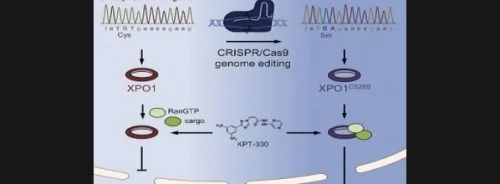A single drop of blood may be all that is required to diagnose a majority of colorectal cancers, with the introduction of a new test by Belgian startup company VolitionRX. The test could represent a less dreaded (and less expensive) option for colorectal screening than colonoscopy and faecal tests, unpleasant procedures which contribute to keeping compliance rates low and death rates high. In the US, colorectal cancer is the second leading cause of cancer-related death.
Data from a large, blind study have confirmed earlier results from smaller studies carried out by VolitionRX, showing that the test is capable of diagnosing 84 percent of colorectal cancers, with a diagnostic specificity of 78 percent. This includes all stages of cancer, not just advanced disease.
Colorectal cancer is highly treatable when detected early, with a five-year survival rate of 74 percent if it is caught in stage 1. Meanwhile, stage 4 colorectal cancer detections have just a six percent survival rate. Encouraging patients to get screened for the cancer is challenging because of the invasive nature of current testing methods, such as colonoscopy.
The larger, pilot study of 4,800 in Denmark assessed a sample of 983 subjects using the NuQ diagnostic platform. The data demonstrated the tests’s efficacy, paving the way for VolitionRX to apply for a CE Mark.
Chief Scientific Officer Jake Micallef released a statement about the promising results and noted that the Nucleosomics technology used in the study “incorporates hundreds of potential epigenetic NuQ tests that may have applicability in colorectal and other cancers.”
VolitionRX, a small-cap public company, recently raised $1.1 million in funding by selling 512,614 shares at a price of $2.20. The money will be used to fund future clinical trials as well as ongoing company operations.
Reference: MedCityNews
Image Credit: Pixabay









